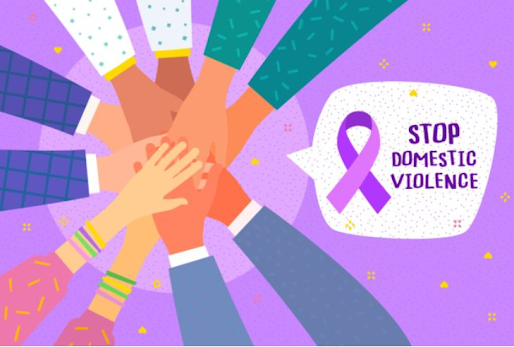By Rosabel Zohfeld, APRN, MSN-Ed, FNP-C
October is designated as Domestic Violence Awareness Month, a time to raise consciousness about a pressing societal issue affecting millions globally. This dedicated month provides an opportunity to educate, advocate, and support individuals affected by domestic violence, encouraging communities to take a stand against abuse and work towards creating a safer and more informed society.
Understanding Domestic Violence
Domestic violence, or intimate partner violence, involves abusive behaviors to gain control and power over a partner, family member, or household member. Domestic violence can occur between intimate partners, family members, or household members. It's a serious societal issue with detrimental effects on victims, encompassing immediate and long-term physical and emotional consequences. These behaviors can manifest as physical, emotional, psychological, financial, or sexual abuse, leaving victims in fear, isolation, and distress. Support, education, and legal interventions are vital in addressing and preventing domestic violence. If you need assistance or information regarding domestic violence, consider contacting a helpline or support organization.
The Importance of Awareness
Domestic Violence Awareness Month is a vital platform to disseminate information about this pervasive issue, dispel myths, and break down the barriers preventing survivors from seeking help. By promoting awareness, individuals are empowered to recognize signs of abuse, offer support, and access resources for themselves or those they know who may be experiencing domestic violence.
Domestic violence awareness involves promoting understanding, recognition, and action to address the issue of domestic violence within society. Attention and awareness include educating people about the signs, effects, and prevention of domestic violence, providing resources for victims, and promoting a culture that rejects violence in relationships. Awareness campaigns often emphasize the importance of early intervention, support for survivors, legal protection, and community involvement to break the cycle of abuse. The goal is to create a society where domestic violence is not tolerated, and victims can access help and support without fear or stigma.
Raising Awareness and Taking Action
Throughout October, many events, campaigns, and initiatives take place globally to spotlight domestic violence. These include awareness walks, educational workshops, social media campaigns, and informational seminars. Activists, survivors, and organizations come together to share stories, offer resources, and call for systemic change.
Supporting Survivors
One of the primary goals of Domestic Violence Awareness Month is to ensure that survivors feel heard, believed, and supported. Advocacy groups, shelters, hotlines, and counseling services are crucial in providing assistance and a haven for those seeking to escape an abusive environment.
Breaking the Silence
Silence perpetuates domestic violence, making it essential to encourage open dialogue. By sharing stories, survivors and advocates inspire others to break free from the cycle of abuse. They emphasize the importance of reporting abuse, seeking help, and offering a supportive environment to those affected.
Community Involvement
Community engagement is pivotal in combatting domestic violence. Local organizations, schools, workplaces, and religious institutions can actively participate by organizing awareness events, workshops, and fundraisers. By uniting communities and fostering understanding, we can work towards eradicating domestic violence.
The Role of Education
Education is a cornerstone of prevention. Schools and educational institutions must incorporate programs that educate students about healthy relationships, consent, and the signs of abuse. Teaching young individuals about respectful behavior can create a future where domestic violence is no longer tolerated.
Conclusion
Domestic Violence Awareness Month is a critical time to unite, educate, and advocate for change. It's a reminder that we all have a role in ending domestic violence. By fostering awareness, offering support, and empowering survivors, we can work together to break the silence, shatter the cycle of abuse, and create a world free from domestic violence.

No comments:
Post a Comment